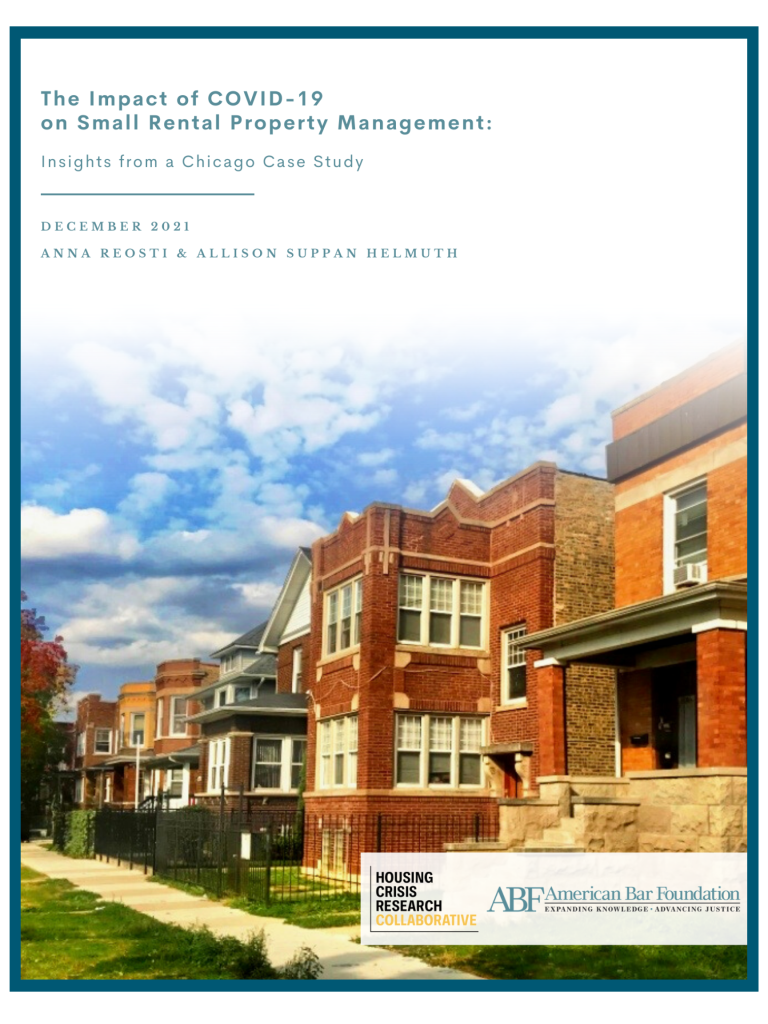American Bar Foundation (ABF) Research Professor Anna Reosti, along with University of Illinois at Chicago Ph.D. candidate Allison Suppan Helmuth, published a new report detailing the experiences of small-building and owner-occupant landlords in Chicago and their responses to the challenges presented by the COVID-19 pandemic. The report, The Impact of COVID-19 on Small Rental Property Management: Insights from a Chicago Case Study, drew on 69 in-depth interviews with independent, small-scale landlords across the Chicagoland area, most of whom live in two-flats and three-flats.

“While most of the landlords in our study managed to maintain their flexible and accommodating approaches to rental management in the face of COVID-19,” Professor Reosti said, “a sizeable minority of those we interviewed reported shifting to more rigid management practices in reaction to the financial challenges and risks associated with the pandemic, or planning to do so in the future.
“Those shifts included raising rents and fees and implementing tougher tenant screening criteria. We hope that our study can help inform policy interventions that prevent or discourage landlords in this sector from passing the risks and costs of rental market crises on to tenants.”
The report’s discoveries shed light on many of the circumstances that force SRP landlords to adopt rigid management practices and how these practices affect the tenants living in these SRP buildings. In conjunction with other ABF-sponsored research, Reosti and Helmuth’s study is designed to help inform the region’s policymakers in their housing and pandemic response measures.
“Dr. Reosti and Ms. Helmuth’s collaboration is a quintessential example of innovative and influential ABF research,” ABF Executive Director and Research Professor Ajay Mehrotra said. “This research is certain to inform policymakers everywhere about the consequences of new housing rules and regulations, especially as society aims to recover from the current pandemic. The ABF is especially grateful to work with the Housing Crisis Research Collaborative and the Urban Institute to make this research possible.”
This SRP report was supported by a grant from the Housing Crisis Research Collaborative, an initiative that aims to address the inequities in access to safe and affordable housing that have been exacerbated by the ongoing COVID-19 pandemic.
###
About the American Bar Foundation
The American Bar Foundation (ABF) is the world’s leading research institute for the empirical and interdisciplinary study of law. The ABF seeks to expand knowledge and advance justice through innovative, interdisciplinary, and rigorous empirical research on law, legal processes, and legal institutions. To further this mission the ABF will produce timely, cutting-edge research of the highest quality to inform and guide the legal profession, the academy, and society in the United States and internationally. The ABF’s primary funding is provided by the American Bar Endowment and the Fellows of The American Bar Foundation.
